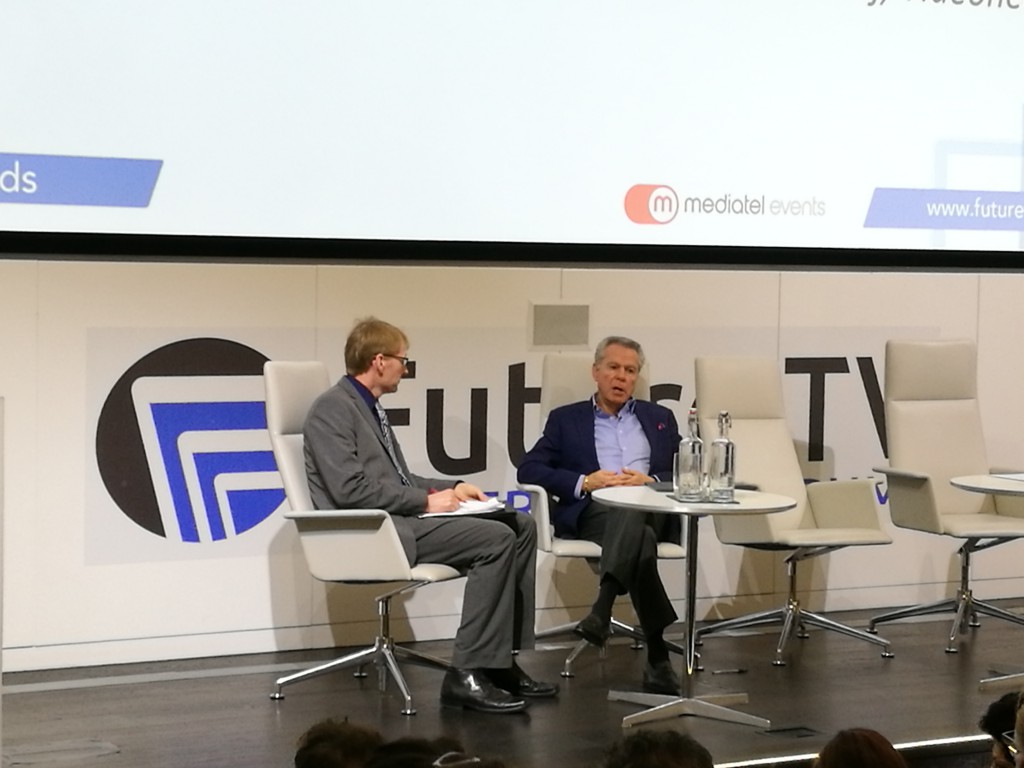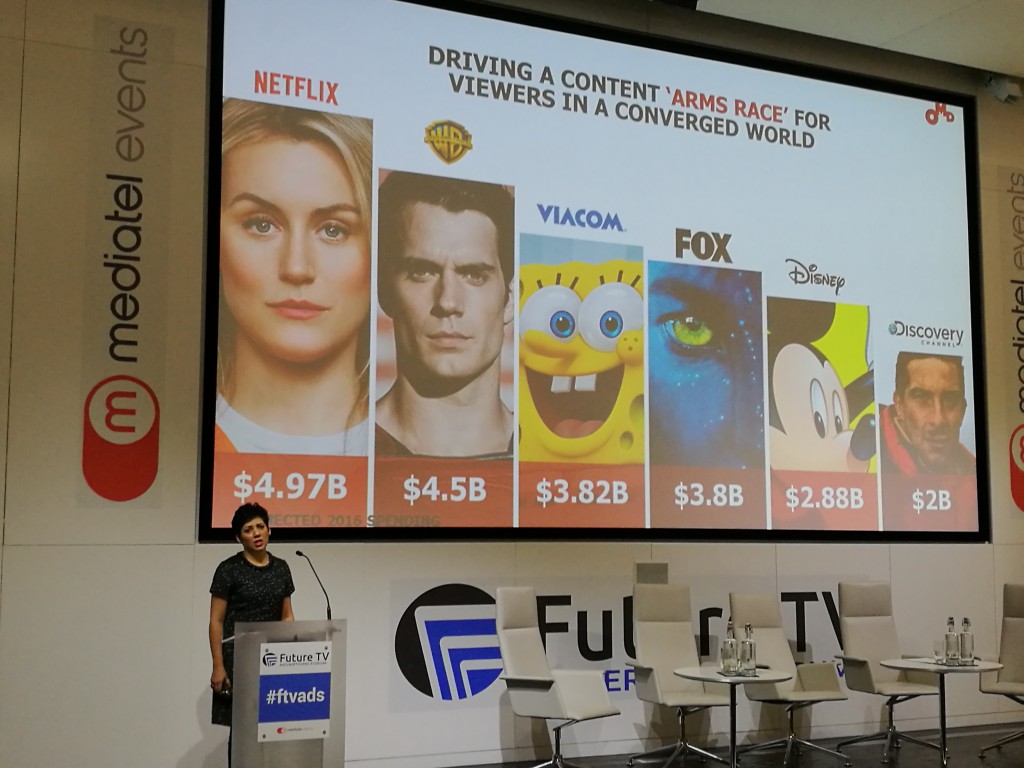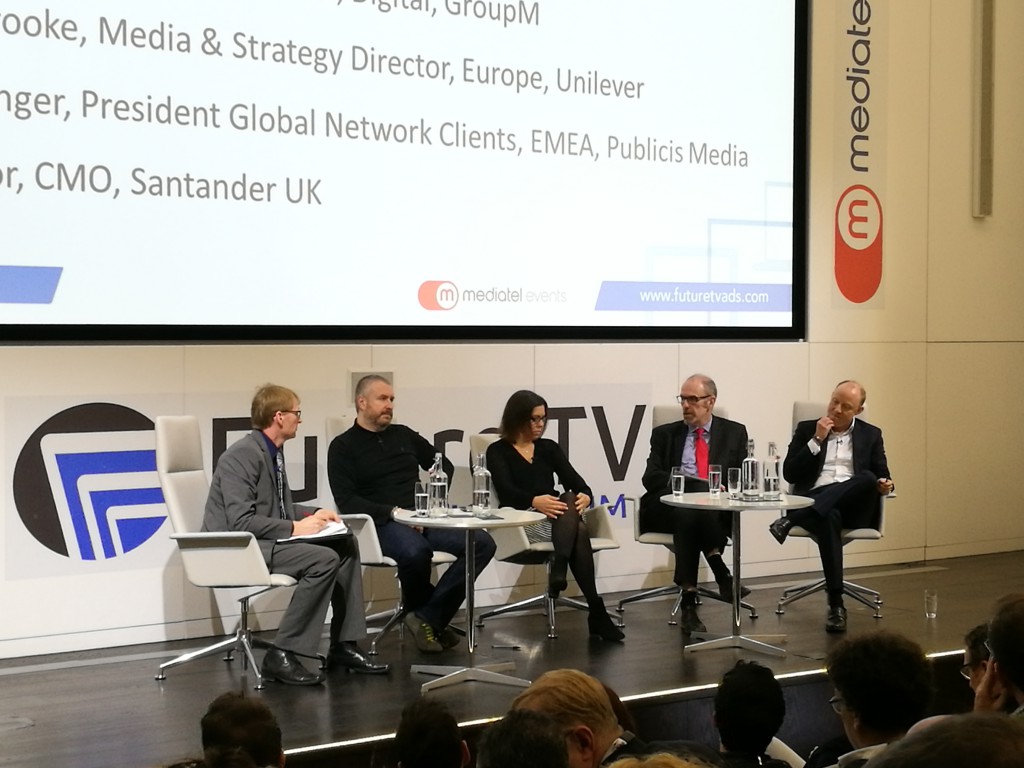Brands and agency executives debated whether ‘addressable’ advertising technology will prove the saviour for the TV industry.
You can always rely on Irwin Gotlieb to offer a dollop of controversy. And so it proved again, at yesterday’s Future TV Advertising Forum conference in London, when Gotlieb asserted that a “digital deceit” had unfairly damaged the television industry’s reputation for advertising effectiveness.
The GroupM chairman was, of course, referring to the issues around media measurement, specifically the implication that digital networks like Facebook have been overestimated their own effectiveness, and that TV has suffered from an absence of data showing total television viewing across all devices, both linear and on-demand.
“TV has been the victim of misinterpretation of data and poor measurement, of digital deceit,” he said. “Marketers who use TV wisely know what it does, and recent events underscore that money is returning to TV. It’s a combination of a lack of understanding of the issues, and of media practice, frankly.”
Plenty of speakers were willing to defend the place of TV in advertising budgets.
Keith Moor, chief marketing officer at Santander UK, said it is tough to replicate the “plentiful” audience offered by broadcast. “You have to accept that audience profiles are changing, but you can’t replicate mass,” he added.
And Richard Brooke, Unilever’s media and strategy director, Europe, agreed that, for advertisers seeking broad audiences, TV is yet to be bettered – even among younger consumers: “The reality is, we need eyeballs. The reality is [consumers aged 16 to 34] are still watching telly.”

‘The thing that scares me most’
The spectre of Netflix, Amazon Prime and ad-free subscription services loomed large at the forum.
Gotlieb harked back to comments made by then-Procter & Gamble CEO Edwin L. Artzt in 1993, regarding the migration of TV viewers towards US subscription services like HBO and Showtime. He argued that, while those fears had been expressed 20 years early, operations such as Netflix may be developing an “advantage” over ad-funded rivals.
“Today that concern is very real, and we take it very seriously. The thing that scares me most is the shift of advertiser audience from advertiser-funded models to non-advertiser funded models,” said Gotlieb, who added that GroupM would be open to the idea of “hybrid” advertising-subscription models to prevent “fleeing” audiences.
While Nikki Mendonca, chief executive of OMD EMEA, agreed that the “power of mass TV is still undeniable”, she warned broadcasters that online channels are forming a “new ecosystem” of creators and distributors.
“This is a digital revolution, and it is making our heads spin and hurt,” said Mendonca. “Data is the fuel that is going to power this system.”
And the current lack of advanced measurement systems for television content viewing is causing headaches for marketers looking to “defend” budget choices to CEOs and CFOs, according to Santander’s Moor.

‘Distrust and distaste is obstructing progress’
While speakers enthused about the potential of addressable TV advertising, and the opportunity to communicate relevant brand messages with viewers, they also warned that such technology has been too slow to develop.
According to eMarketer, around $400m was spent on addressable TV ads in 2015. Even a fairly optimistic projection by GroupM suggests that addressable TV will might reach $2bn by the end of 2017, equating to 1% of total global TV investment.
Gotlieb showed his irritation that different parts of the TV industry continue to engage in “intra-system bickering”, rather than uniting to meet today’s data challenge and secure the future of the medium – particularly in the US, where TV channels and cable distributors are often at loggerheads.
“Distrust and distaste is obstructing progress. We’re got to put all this petty nonsense aside, and to advance the capabilities for the benefit of our audiences, who will see less irrelevant marketing content,” he said.

‘Wastage in TV doesn’t exist’
In the meantime, ironically, it may be TV’s old-fashioned mass-media appeal that protects its place within brand marketing budgets. Jodie Stranger, president global network clients at Publicis Media, observed how Airbnb had used digital media to establish its brand, and then turned to TV to build scale.
Both P&G and Unilever have recently expressed concern about the dangers of becoming overly-targeted on digital mediums, thereby reducing the number of people who view their communications. This sentiment was widely echoed at the forum.
“Addressability helps [in making TV advertising more effective], as does data, but the danger is that it is reductive, you end up disappearing up your own backside,” commented Moor.
Unilever’s Brooke went even further, suggesting that the idea of “wastage” in broadcast should be set aside – using the example of the launch of Dove’s range for men, and the fact that male consumers were already aware of its brand values: “Fundamentally, it’s about selling stuff. We can get very wrapped up in what we can do, but forget the human truth.
“[With Dove for Men] everyone knew what that stood for without having previously bought the brand. People who aren’t consuming your product today are tomorrow’s customers. You are not just building brand equity for now, but for people who will want to buy your product in the future. Wastage in TV doesn’t exist.”
GroupM’s Gotlieb was also very vocal on this subject, and warned that an over-dependence on audience targeting could prove disastrous: “Television has been extremely effective at delivering broad awareness – it feeds the top of the marketing funnel extraordinarily well.
“Over-focus on ROI, and you have a smaller business.”








